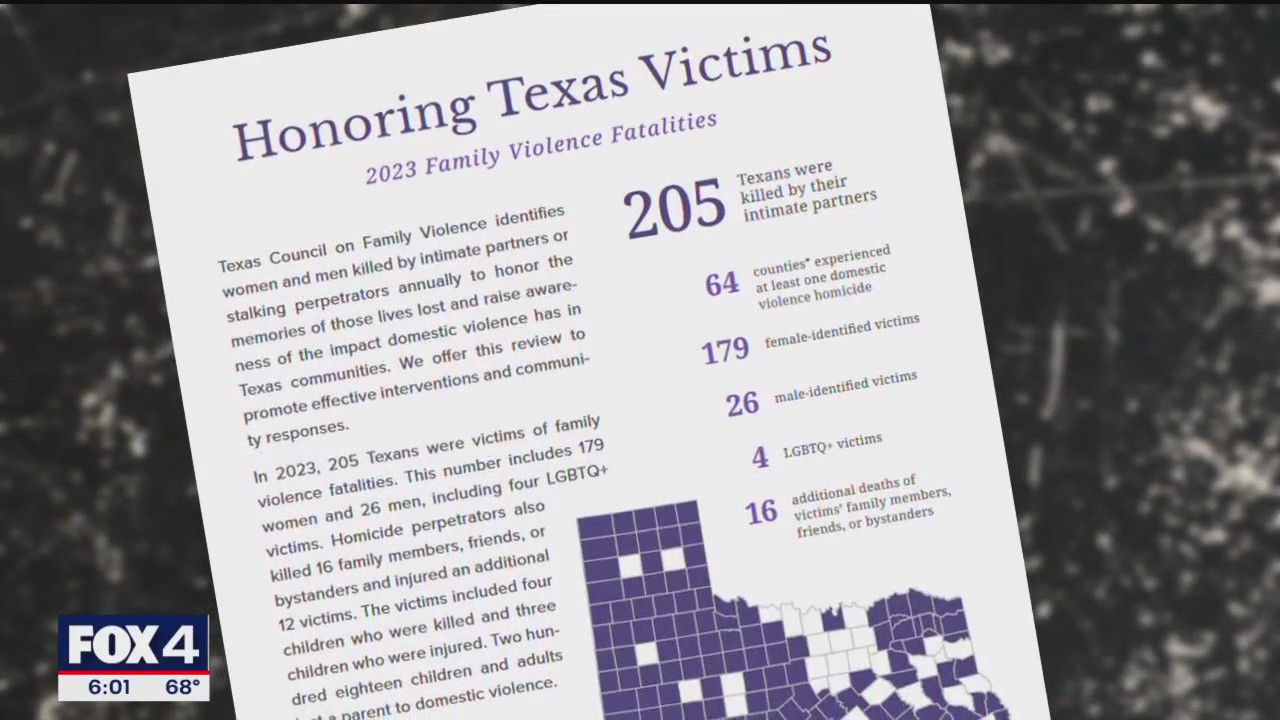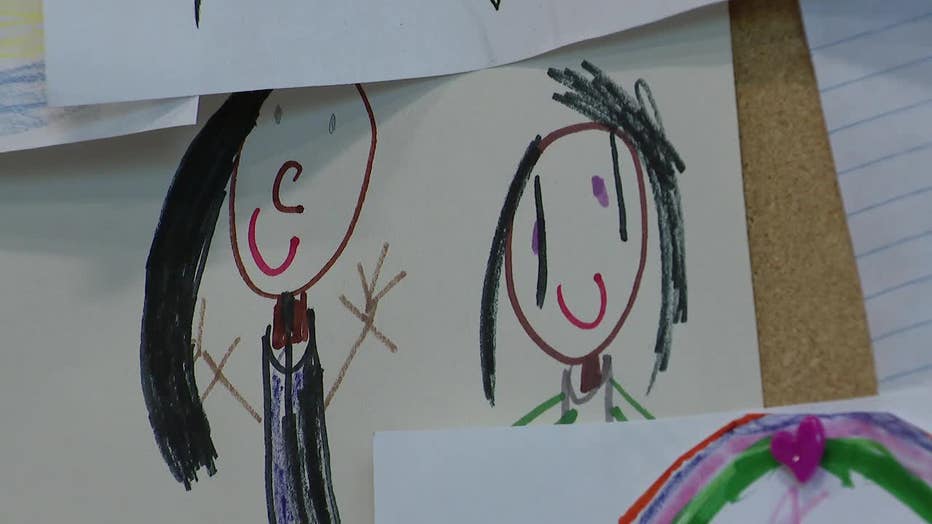Federal prosecutors call attention to domestic violence cases in Texas

Prosecutors call attention to TX domestic violence cases
The four federal prosecutors representing the state of Texas toured a Dallas domestic violence shelter on Tuesday, chatting with victims and advocates to try to come up with solutions.
DALLAS - The four federal prosecutors representing the state of Texas toured a Dallas domestic violence shelter on Tuesday, chatting with victims and advocates to try to come up with solutions.
They believe cooperative work at all levels is how domestic violence must be dealt with.
Aaliyah Miranda’s moving testimony of how she ended up at the Family Place opened the discussion Tuesday about people being hurt or killed by the men and women with whom they share life.

"My then husband’s control, violence, and abuse were overwhelming, especially after the birth of our son, who was born with a serious birth defect which my husband blamed me for. One night after a particular violent episode, my young son got involved, telling his father to stop hitting me," she said. "I truly feared for my life and realized I had to escape."

Domestic violence statistics for Texas over the past year are hard to hear.
"In the last year, over 200,000 calls were made to law enforcement because home was not safe. In the last year, over 80,000, primarily women and children, sought services at agencies like the Family Place because home was not safe. And in the last year, 205 Texans lost their lives at the hands of a person who claimed to love them," said Gloria Terry, the CEO of the Texas Council on Family Violence.
Most murders in these incidents are with guns, and Leigha Simonton, the U.S. Attorney for the Northern District of Texas, won a victory at the Supreme Court over the summer when the justices upheld a federal law that prohibits people under domestic violence protective orders from having weapons.
The case centered on Zackey Rahimi from Arlington who argued the federal law infringed on his Second Amendment rights.
"That's a really big one. The one that prohibits people who have a protection order from having a gun, that's a big one. But we also have one that prohibits anyone with a misdemeanor assault conviction [for domestic violence] from having a firearm," Simonton said.
Cops, shelters, and the courts are doing their part, but breaking the chains of violence in a relationship is not easy.
"You'll hear people say, ‘Well, she should leave.’ Well, it’s not that simple. This is a very complicated issue. But it is an issue that is so important to our community we need to up the conversation," said Jaime Esparanza, the U.S. Attorney for the Western District of Texas.
Miranda is no longer a victim but a victor and wants others to know their story can end like hers.
"They too can find hope and healing with the support of organizations like the Family Place," she said.
In addition to talking about federal initiatives, events like the one on Tuesday are designed to bring awareness and get people talking about the uncomfortable subject.


